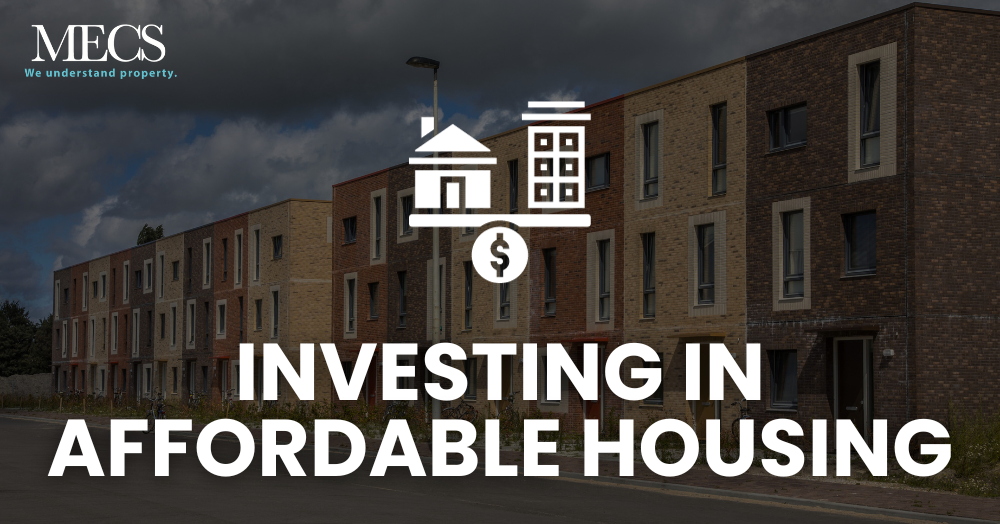Affordable housing is a critical issue that affects communities worldwide. It plays a vital role in addressing homelessness and ensuring that individuals and families have access to safe and stable living conditions. There is an emerging trend of private investors recognising the potential benefits of investing in affordable housing projects.
The Need for Affordable Housing
Affordable housing refers to housing that is affordable to individuals or families with low to moderate incomes. The lack of affordable housing has serious consequences, including homelessness, overcrowding, and financial instability. It affects vulnerable populations, such as low-wage workers, seniors on fixed incomes, and families struggling to make ends meet. Addressing this issue is not only a moral imperative but also a sound economic decision, as stable housing can improve overall community well-being and economic stability.
The Benefits of Investing in Affordable Housing
Steady Cash Flow: Affordable housing properties typically generate steady rental income, as there is a consistent demand for such housing. Investors can enjoy a reliable cash flow, which can provide long-term financial stability.
Social Impact: Investing in affordable housing allows investors to make a positive social impact. By providing safe and affordable housing options, investors contribute to improving the quality of life for individuals and families in need.
Government Incentives: Many governments offer tax incentives, subsidies, or grants to encourage affordable housing development. These incentives can enhance the financial attractiveness of such investments.
Diversification: Affordable housing investments can provide diversification for an investor's portfolio, reducing risk compared to more volatile investments like stocks or cryptocurrencies.
Long-Term Appreciation: Affordable housing properties can appreciate in value over time, providing potential capital gains for investors.
Challenges of Investing in Affordable Housing
Regulatory Hurdles: The regulatory landscape for affordable housing can be complex and varies by location. Investors may need to navigate a web of rules, restrictions, and compliance requirements.
Initial Capital Requirements: Acquiring affordable housing properties may require significant upfront capital, making it a challenging investment option for some.
Property Management: Managing affordable housing units often involves working with vulnerable populations, which can be more demanding than managing traditional rental properties.
Economic Downturns: While affordable housing is generally considered a stable investment, economic downturns can impact renters' ability to pay rent, affecting an investor's cash flow.
Stigma: Some investors may face social stigma or resistance from community members who fear gentrification or changes to their neighbourhood.
Balancing Profit and Social Impact
Investing in affordable housing is not merely a binary choice between profit and social impact. Many investors are finding ways to strike a balance between the two:
Impact Measurement: Investors can assess the social impact of their investments by tracking metrics like the number of affordable units created, improvements in tenant well-being, and community development indicators.
Collaboration: Collaborating with non-profit organisations or social impact investors can help ensure that the focus remains on both profit and social good.
Long-Term Commitment: Committing to long-term investments in affordable housing allows investors to realise both financial returns and social benefits.
Ethical Practices: Ethical property management practices, such as rent stabilisation and tenant support services, can foster a positive reputation and maintain tenant satisfaction.
Conclusion
Investing in affordable housing can be a win-win for both investors and society. By addressing the pressing need for affordable housing, investors can generate reliable income, achieve long-term financial growth, and make a positive social impact.
However, navigating the complex landscape of affordable housing investments requires careful planning, ethical practices, and a commitment to balancing profit and social impact. As the demand for affordable housing continues to grow, more investors have the opportunity to contribute to a better future while building a strong financial portfolio. If you would like to discuss this in more detail why not give us a call?
0121 681 6327
info@mecsproperty.co.uk

